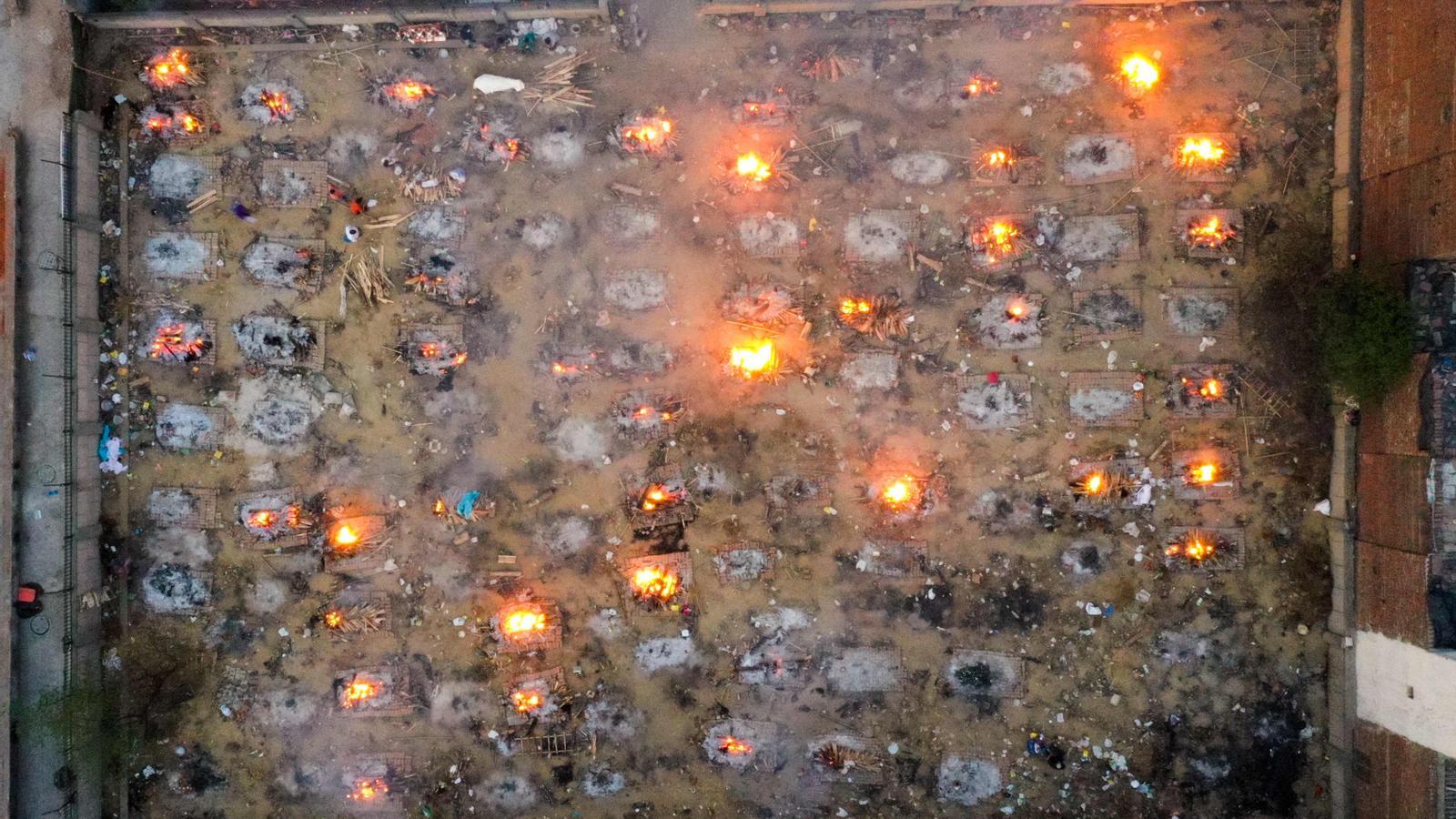Covid-19 out of control in India
Country records five days with over 300,000 daily cases and reaches a record number of deaths: 2,800 in one day


One million infections in just three days, a record number in the world. That's how fast covid-19 is spreading in India, in a devastating second wave that this Monday has left another record number in the country: 2,800 deaths in a single day. Hospitals in Delhi and Mumbai continue to demand more oxygen to be able to attend to all the sick, many of whom are drowning while waiting for a cylinder that never arrives. Images of massive funeral pyres inside and outside the two major cities have gone around the world, because crematoria do not have enough capacity.
Since last Thursday India exceeded 300,000 cases per day, a figure that no other country had achieved, the data have continued to grow and have stayed above this figure for five days. This Monday's figures have once again broken records: 352,991 cases and 2,812 deaths in 24 hours.
Faced with this desperate situation, several countries have mobilised to help India. The WHO announced on Monday that it will send medical supplies and aid, the United Kingdom, Germany and France have pledged to send urgent medical aid and a shipment of oxygen from the United States landed at Delhi airport on Monday night. US President Joe Biden also spoke to his Indian counterpart, Narendra Modi, by phone on Monday to offer assistance and to discuss joint strategies to boost vaccine production. The world's largest producer of vaccines, the Serum Institute of India, stopped exporting doses at the end of March due to the virulence of the virus in the country. And just yesterday some media reported that vaccine production was again running low.
There are several factors that explain the accelerated spread of the virus in the second most populous country in the world. One of them is the new Indian variant, a triple mutation that has become much more contagious and affects younger people much more, including children. "This time the virus is spreading faster and in more severe cases, especially among younger people, between 30 and 50," confirms Dr. Praveen, director of the Bathalapalli Hospital of the Vicenç Ferrer Foundation.
This NGO's premises, in a rural area in the centre of the country, has been converted into a hospital specialising in covid-19 and is already at 85% of its capacity, with 65% of patients in need of oxygen. To avoid the situation that they have been seeing for days in hospitals in Delhi and Mumbai, the foundation is now working to get an oxygen generator that will guarantee them autonomy.
Indian researchers are trying to find out if the current vaccines are effective with the mutations of the virus that have been detected in the country. India has reported cases of patients admitted with covid-19 who had received both doses, but scientific research is needed to determine if these are isolated cases. India currently produces the AstraZeneca vaccine, which they call Covashield, and an Indian vaccine called Covaxin, but it is expected that production of the Russian Sputnik V will begin soon. But these doubts, coupled with the misinformation circulating about side effects, have made many people reluctant to get vaccinated. And this, coupled with production still below demand, means that the majority of the population will have to pay for the vaccine or simply wait. So far, 117 million Indians have received at least one vaccine, below 10% of the population.
But another relevant factor has been political decisions, which last February led to the declaration of the country's victory over covid-19. Restrictions were lifted almost completely. The Modi government has not only allowed but encouraged mass election rallies in recent weeks, ahead of several crucial state polls for the party, the BJP. It also allowed mass celebrations such as the Kumbh Mela festival, which in early April brought two million Hindu pilgrims crowding on the banks of the Ganges, just as covid-19 numbers were already soaring. Now lockdown has returned to Delhi and many other states are imposing tougher restrictions and even raising fines for those not wearing masks.
